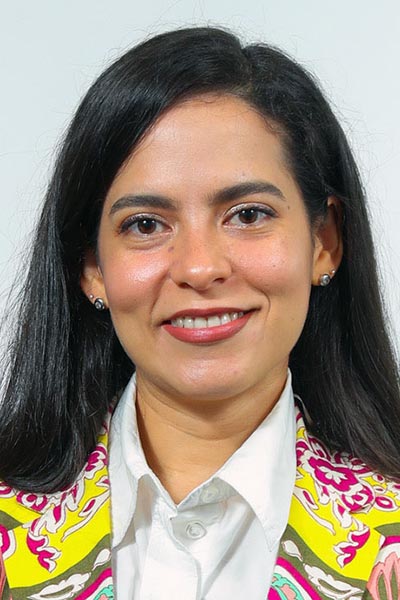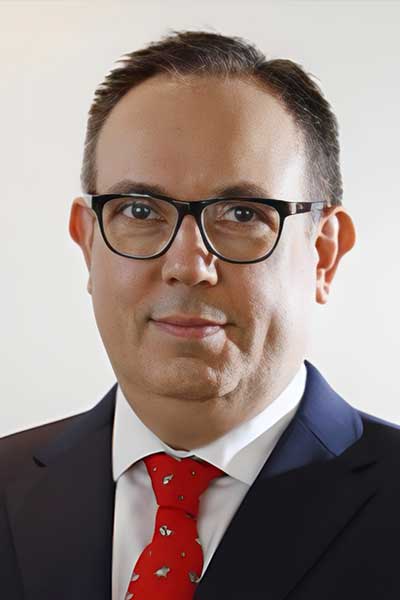Countries in Latin America (LATAM) face pressing challenges that affect access to lung cancer care, ranging from technological limitations to socioeconomic disparities. The LATAM Workshop aims to address these disparities during the 2025 World Conference on Lung Cancer (WCLC) in Barcelona.

Workshop leaders will unite on Saturday afternoon to lay the foundation for solutions that will address the region’s wide-ranging challenges. The workshop will take place on at 14:30 Central European Summer Time (CEST) today, Saturday, September 6, in Room 06.
Session chairs Lucía Viola, MD, and Luis Raez, MD, FACP, FASCO, will guide the program, which includes five presentations and three abstracts highlighting current research:
- Performance of Lung Nodule and Cancer Risk Calculators in Identifying Primary Lung Cancer Across Screening and Incidental Nodule Populations
- Drug Repurposing for Metastatic Lung Adenocarcinoma Therapy Using AI-Guided Single-Cell Gene Expression Profiles
- Lung Cancer’s Price Tag: Escalating Hospitalization Costs in Brazil Over the Past Two Decades
“The discussion will focus on key issues such as the cost of oncological treatment, risk calculators, advances like artificial intelligence (AI) and gene expression profiling,” said Dr. Viola. “We will have a very heterogeneous panel with diverse presentations and abstracts. Our goal is not only to present abstracts but also to foster participation and dialogue.”

14:30 CEST, Saturday, September 6 • Room 06
Learn the reality and challenges of lung cancer care in the 25 countries that make up the Latin American region. LEARN MORE
One of the topics at the forefront of the conversation is the role that AI can play in lung cancer care across LATAM.

“Some countries are still relying on radiographs without the aid of AI. Implementing AI in the LATAM context could help strengthen these programs, but the lack of hardware, software, and resources makes it difficult,” said Dr. Viola. “Our goal is to find solutions and highlight how these issues can be addressed.”
Gilberto de Castro, MD, PhD, will further explore the topic of AI in his presentation on how clinicians can use the technology to improve lung cancer screening across LATAM.

“Considering the incidence of lung cancer and its lethality, implementing technologies to promote early diagnosis in asymptomatic patients—or even in patients with nonspecific symptoms—seems important to us as this diagnosis would occur at earlier stages, increasing the probability of cure and/or disease control,” said Dr. de Castro.
He emphasized that AI should be seen not only as a diagnostic tool, but also as a means of strengthening clinical outcomes.
“In addition to new questions we need to explore in future clinical, translational, and epidemiological studies, results from clinical studies with clinically relevant gains—in terms of greater overall survival and better quality of life—can be incorporated into practice,” Dr. de Castro said.
Maria Clara Rodriguez, MD, will address the current state of clinical research in LATAM during her presentation, along with strategies to strengthen and expand research capacity.
“Improving clinical research in LATAM is not only feasible but essential,” Dr. Rodriguez said. “Collaborative, well-structured efforts can generate impactful, globally relevant data while expanding access to innovation for patients in the region.”

The program will also feature presentations from Stella Martínez, MD; Isabella Barcelos Favato, MD; and Pedro Aguiar Jr., MD, MSc, PhD, MBA. They will discuss the implementation of endobronchial ultrasound (EBUS) bronchoscopy and minimally invasive surgery, progress in molecular testing, and strategies for enhancing scientific collaborations.
Together, the expert presentations and abstracts provide a comprehensive look at the challenges and opportunities facing lung cancer in LATAM. By sharing diverse perspectives and practical strategies, the LATAM Workshop aims to advance lung cancer care and improve patient outcomes by building a solution-based foundation.
“We know we can’t solve every challenge, but the goal is to build a framework of solutions, share knowledge across specialties, and create stronger connections with colleagues throughout the region,” said Dr. Viola.
The workshop will conclude with an abstract discussion and an interactive Q&A forum.










